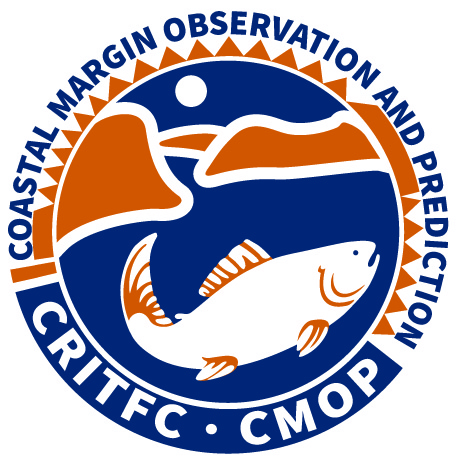Levels of Data Processing Available via the Data Explorer:
- PD0 (processed data level 0): These are the raw data prior to any corrections.
- PD1 (processed data level 1): These are preliminary data that have undergone some initial quality control, such as a real-time correction for a data artifact or preliminary flagging of periods of bad data, but they have not been subjected to the full quality control process outlined below.
- PD2 (processed data level 2): These are the verified data that have been subjected to the full quality control process outlined below and assigned one of 5 data quality levels.
Data Quality Levels:
Data that have been evaluated are assigned one of five data quality levels ranging from good at level 1 to bad at level 5:
- QL1 (GOOD): these are data that have have met all of the criteria for that sensor type to qualify as good data.
- QL2: data that are often probably-good, but may be missing some information to verify the data are good
- QL3: this flag is used for data that have some quality concerns and users should pay particular attention to the quality control notes (via metadata or supporting documentation) to determine whether data are appropriate for use.
- QL4: non-bad data that have serious quality concerns. Users should pay particular attention to the quality control notes (via metadata or supporting documentation) and use the data with caution.
- QL5 (BAD): these are “garbage” data such as during periods of sensor malfunction or outliers.
QA/QC procedure:
The QA/QC of biogeochemical data include the following types of evaluation:
- Visual Inspection of the data: the data are examined visually to identify periods of sensor malfunction, outliers and any unusual or suspect data patterns.
- Calibration Evaluation: for those sensors that are calibrated, the accuracy of the calibration is evaluated based on the results of sensor-specific field protocols. For some sensors, a calibration is developed based on data from field samples.
- Data corrections may be applied to certain data sets to correct for calibration drift or offset, data artifacts, or for sensor fouling (when possible).
The visual inspection of data, calibration evaluation, and any data corrections each result in their own quality assessment, all of which are used to determine the final data quality flag. For example if visual inspection found the data to be good (QL1), but the calibration was determined to be of intermediate quality (QL3), the final data quality flag would be QL3.
Versioning:
Occasionally there will be updates or changes to the quality controlled data or quality assessments. Each release of quality flags is assigned a version number which will be provided with the relevant flag metadata. A log detailing the flag-set versions, the dates the changes were applied, and a description of the type of changes made to the quality flags will also be available with the flag metadata.
Data Notices:
Significant revisions to previously released qualtiy controlled data are also posted on the Data Notices page
Access to QA/QC Information:
Users are encouraged to consult the QA/QC metadata and the QA/QC supporting documentation in order to fully understand the reasoning behind the quality assessments prior to determining whether the data is appropriate for a particular use.
- Metadata: all data that are flagged as less than good and some good data will have associated comments detailing the data quality determination. These comments are included in the QC metadata available for through the Data Explorer. To view the QC metadata for plotted data, select the QC metadata link under the tool icon in the upper right corner of the Data Explorer plot.
- Supporting Documentation: In addition to the metadata, the links at the bottom of this page will take you to variable-specific web pages with QA/QC information for each variable and an archive of supporting documentation that details data/sensor quality determinations.
Feedback
Quality control is an ongoing process and feedback is welcome. If you have concerns about a quality determination or a particular dataset please contact Sarah Riseman
